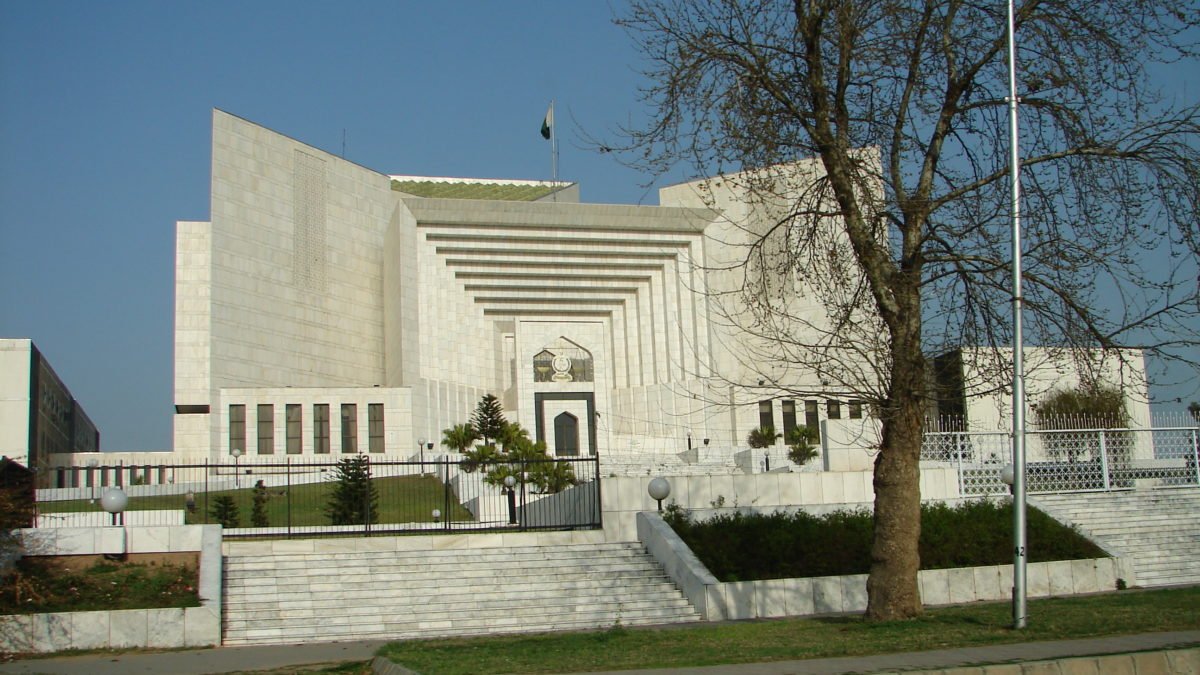The Supreme Court of Pakistan is set to revisit the ‘Faizabad Interchange’ protest case, which was initially decided in February 2019. This development comes as various government entities, including the Ministry of Interior, Ministry of Defence, PEMRA, ISI, PTI, MQM, and Sheikh Rashid, have requested a review of the decision.
Chief Justice Qazi Faez Isa, along with Justices Aminuddin Khan and Athar Minallah, will form a three-member bench to hear the case on Thursday, September 28, 2023. The case, which spans 43 pages, was originally decided by a two-member bench, headed by Justice Qazi Faez Isa, and the verdict was upheld after a comprehensive review of evidence on November 22.
The case revolves around the protest held by the Tehreek-e-Labbaik Pakistan (TLP) at the Faizabad Interchange in 2017. The protesters had demanded that the government, the Ministry of Defence, and the top military officials renounce their oaths on a matter related to ‘one’s own officials.’ The court had also ordered legal action against ‘their own officers’ for violating their oath, while also issuing directives to federal and provincial governments to counter hate speech, promote extremism, and take legal action against those responsible. The court’s decision emphasized the importance of the state remaining impartial and just, and the equal application of the law to all, whether within the government or government agencies.
It’s noteworthy that following the implementation of the court’s decision, Prime Minister Imran Khan’s federal government initiated a clandestine surveillance operation against Justice Qazi Faez Isa and his family, based on unfounded and baseless allegations. This action led to a transparent and unfounded reference against the judge, which was sent to the Supreme Judicial Council without any proper inquiry.
Furthermore, during the tenure of the Pakistan Muslim League-Nawaz (PML-N) government, an attempt was made to amend the Constitution to change the words in the oath from “I solemnly swear” to “I believe.” This move resulted in widespread protests across the country, prompting Parliament to revert to the original wording in the oath on October 19. Despite this, the Tehreek-e-Labbaik Pakistan continued its protest for 22 days, paralyzing both cities and demanding the removal of then Federal Law Minister Zahid Hamid and, subsequently, the resignation of the government itself.
The reexamination of the ‘Faizabad Interchange’ protest case by the Supreme Court holds significant implications for the rule of law and democracy in Pakistan. It reaffirms the principle that all state institutions and agencies must operate within the bounds of the law and uphold democratic values. The outcome of this case will be closely watched as it has far-reaching consequences for the country’s political and legal landscape.



